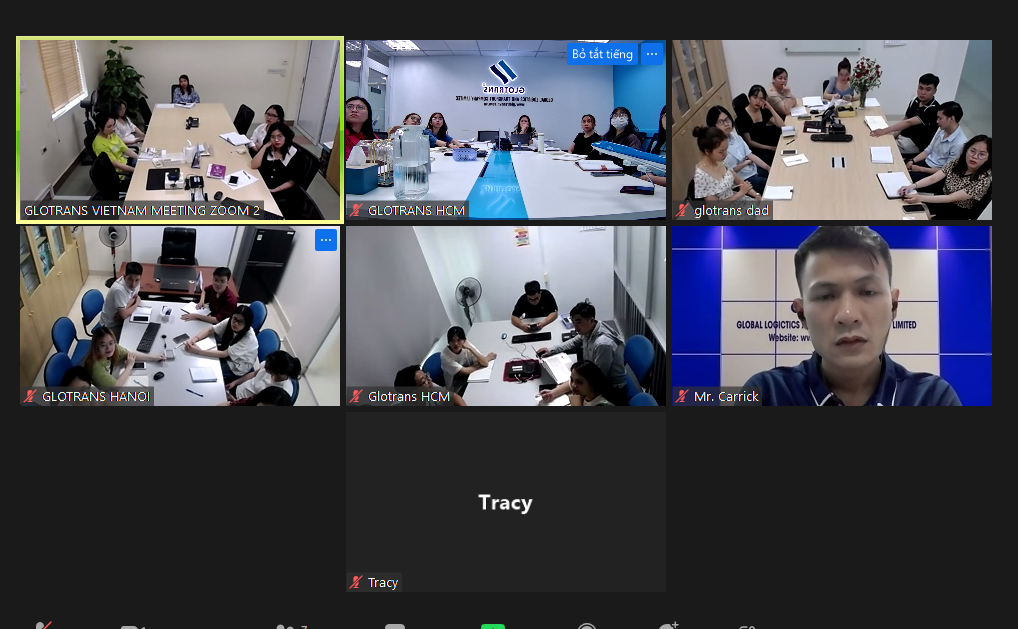At Glotrans, human resources are recognized as a crucial resource and the foundation for the organization's development. The more capable, highly skilled, and adept employees are in possessing soft skills, the more robust the enterprise will become. Consequently, human resource training has always been an element that Glotrans dedicates significant passion and attention to, aiming for sustainable development.
In the first quarter of 2023, the offices within the Glotrans network conducted internal and external training programs with meticulous investment in content, generating opportunities for employees to access professional knowledge, working methods, and essential soft skills.
For internal training, Glotrans focuses on imparting specialized knowledge such as the procedures for managing import/export shipments, customs clearance processes, trucking procedures, etc. Additionally, training sessions are offered to introduce corporate culture and necessary soft skills.


In addition to internal training programs, Glotrans regularly enrolls managers and employees in external training courses conducted by reputable training centers. In-depth training courses on soft skills and management methods are offered, covering topics such as Professional Management Skills for Department Heads and Team Leaders, Peak Communication - Peak Success, Effective Human Resource Recruitment in the New Context, and Professional Presentation Skills. These courses have equipped employees with valuable new knowledge and upgraded their skill sets in light of the evolving market landscape.


Glotrans' commitment to investing heavily in training programs has yielded fruitful results, contributing to a workforce with robust professional knowledge and, more importantly, the ability to skillfully apply management and soft skills in a flexible manner. By fostering an environment that not only provides improved remuneration policies but also invests in raising employee awareness, knowledge, and skillsets, thereby increasing the value for the workers themselves, each Glotrans employee, through training programs, will gain a fresh perspective and innovative approach to their work. This paves the way for enhancing the creativity of the human resource pool, enabling Glotrans to meet the ever-increasing demand for service quality in the market and accompany the company's continued development.











